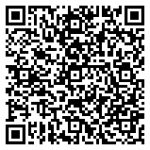
Program Highlights
- Multilayered approach that includes triage by trained dispatchers, 24-hour triage line, co-response teams, follow-up case managers, and focused community engagement
- Embedded mental health professionals in police agency
- Comprehensive data collection and information-sharing procedures
- Robust training strategy that includes 40-hour Mental Health Intervention Training
- Mental Health Crisis Response Program Advisory Board for engaging community partners
For more than four decades, the Los Angeles Police Department (LAPD) has deployed its Mental Evaluation Unit (MEU) to assist patrol officers with mental health-related calls. With more than 160 personnel assigned to the MEU, the LAPD has one of the first and largest law enforcement-mental health co-response operations in the nation. The MEU falls within the Crisis Response Support Section (CRSS), which also includes the Threat Management Unit (focusing on stalking and workplace violence).
The MEU has developed additional subunits over several decades to include Systemwide Mental Assessment Response Teams (SMART), the Case Assessment Management Program (CAMP), the Triage Desk, and the Administrative-Training Detail. It is a comprehensive operation that deploys professionals from diverse disciplines who work as a team with the goal of appropriately responding to calls for service involving people experiencing mental health crises.
Systemwide Mental Assessment Response Team (SMART)
In 1993, Los Angeles was one of the first communities to develop and implement its police-mental health co-responder SMART program to supplement MEU activities. This program, which is co-supported by the Los Angeles County Department of Mental Health (LACDMH), helps uniformed officers effectively respond to and link people in crisis to appropriate mental health services. Currently 12 – 14 SMART Units are deployed on a 24/7 basis.
Senior Lead Officer Program
The MEU Senior Lead Officer (SLO) is responsible for the Police Bureau they are assigned and all of the Area Commands within their assigned Police Bureau. They act as a liaison with the Area Senior Lead Officers to provide an interface between the Area SLOs with Department the community, and Countywide resources to manage mental health related issues or concerns. This includes community meetings, COMPSTAT related concerns, and response strategies.
Case Assessment Management Program (CAMP)
In 2005, CAMP was implemented to help identify, track, and develop customized long-term intervention strategies. The program uses a case management approach to facilitate individuals’ treatment and minimize violence and repeat encounters involving emergency first responders. CAMP pairs police detectives with psychologists, nurses, and social workers from the LACDMH.
Triage Desk
The MEU’s long-established Triage Desk fields calls from patrol officers seeking guidance for managing situations involving people who appear to have mental illnesses. The triage officer consults the MEU database to learn if the person in question has a history of police contacts. A triage mental health nurse sits alongside the officer and can check the LACDMH databases to identify the case manager, psychiatrist, or treatment centers.
As of February 2021, Communications Division dispatches a SMART Unit with patrol on certain mental health related calls. Officers in the field may still call the triage desk to request a SMART Unit, for advice, or to facilitate transportation to a mental health facility. LAPD personnel encountering a person believed to be in a mental health crisis must contact the Triage Desk for assistance and provide a detailed incident report. Subjects of frequent calls or interventions are referred to the CAMP coordinator for follow-up. Those follow-up reports and related database have more limited access to ensure privacy protections.
MEU Training Unit
The MEU Training Unit is responsible for conducting the 40-hour Mental Health Intervention Training, which is delivered every other week. The Unit is also responsible for addressing mental health-related topics during training for Field Training Officers, Police Service Representatives (911 operators), and Adult Custody Officers (jail personnel).
LAPD Mental Evaluation Unit Tour